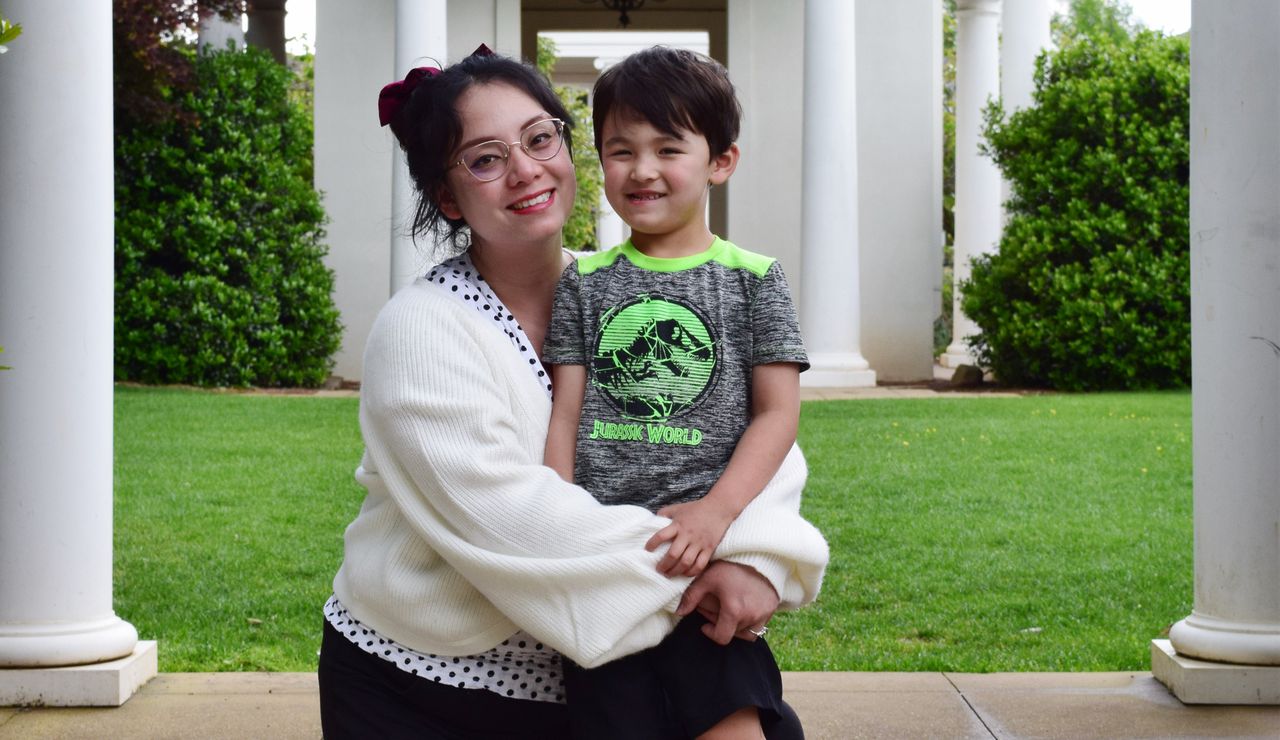Guest opinion: Sunday was a sad Motherâs Day for Chinese Alabamians
While House Rep. Scott Stadthagen celebrated Mother’s Day with his wife and mother, many mothers in Alabama were distressed and anxious due to the news circulating in the Chinese community that a new bill would prohibit Chinese citizens and entities from purchasing land or homes in Alabama.
The “Alabama Property Protection Act,” introduced by Stadthagen, targeted a minority group that has contributed to Alabama’s science, technology, education, economy, and culture, causing sadness for many Chinese mothers, families, and minority communities in the state.
The recently passed House bill aimed at combating the perceived “China threat” and bolstering national security only serves to boost the political image of the politician who seeks personal recognition by riding the national wave of “containing a rising China”. This approach, however, has direct detrimental consequences for all residents of Alabama. This legislation obstructs the interests of all Alabamians, impeding economic opportunities, scientific and educational advancements, and undermining cultural diversity.
Rep. Stadthagen shows a blatant disregard for facts, evidence, and the undeniable reality of the significant contributions made by Chinese Americans, Chinese citizens, and Chinese businesses residing in Alabama. His proposed legislation not only harms the well-being of citizens but also tarnishes the reputation of our state on both national and global stages.
Attracting foreign firms and investment has been a crucial driver of economic growth in Alabama over the past decade. As one of the largest agricultural states, rural communities have significantly benefited from the presence of these foreign companies, which have served as major catalysts for economic improvement.
Golden Dragon, a Chinese company, has played a vital role in Alabama’s Black Belt by creating over 300 jobs and becoming a significant contributor to the local economy. Many view Golden Dragon’s endeavors in Wilcox County as a new economic model for developing rural economies in Alabama.
Implementing laws that prohibit foreign entities from purchasing additional properties is counterproductive to Alabama’s longstanding efforts to attract foreign investment. The hostile image created by such a bill may discourage global investors from selecting Alabama as a preferred destination for their businesses and investments. Representative Stadthagen and his co-sponsors may have unwittingly jeopardized the promising futures of many young Alabamians employed in these globally competitive firms while also negatively impacting local economies.
RELATED — Archibald: Chinese Alabamians remain in “panic” over legislative affront
In addition, North Alabama takes great pride in its advancements in technology, science, and education. The University of Alabama (UA) system, including UA, UAB, and UAH, houses a significant number of Chinese scientists, scholars, and students who contribute to the development of science and technology, the creation of patents, and the generation of millions of dollars in funding support. They also play a crucial role in starting businesses and providing job opportunities for local American citizens. The National Aeronautics and Space Administration (NASA), the Marshal Rocket Center, and the Hudsonalpha Institute serve as hubs for thousands of Chinese and other minority scientists and engineers who have become the driving force behind scientific and technological innovation and development in the region. Many of these talented individuals work under H1B visas, and they now face the direct threat of losing their homes.
Alabama also faces challenges in public health, with a significant underserved population and deficiencies in healthcare access. Chinese Americans also have a well-established reputation in the field of medicine, and many Chinese physicians, family doctors, and nurses have been instrumental in providing essential healthcare services to the Alabama population.
Quoting a sincere Alabama resident, “Chinese doctors: good enough to save you and your friends/family’s lives during a three-year-long pandemic but not good enough to own a home. Not good enough to open a business that generates money into our community and economy.”
This sentiment raises a valid concern. What will happen if Chinese doctors and other professionals leave Alabama because they are unable to purchase homes and feel unwelcome in the state? Their departure would not only result in a loss of highly skilled professionals but also impact the availability of healthcare services and hinder economic growth in local communities.
While Alabama possesses significant agricultural land, it is important to note that the top buyers of this land are countries such as Canada, Italy, the United Kingdom, and Germany, according to the Alabama Commerce Department. Chinese citizens and entities play a minimal role in the acquisition of agricultural land, accounting for less than 1% of investments. In other words, without conducting careful factual research, Rep. Stadthagen’s proposed bill would not achieve its goal but inflict harm on Chinese people living in Alabama, Asian communities at large, and most importantly, the citizens of Alabama themselves.
On May 17th, HB379 was deliberated in the Committee to Senate Agriculture, Conservation, and Forestry, and it underwent substantial revisions. While the bill no longer targets “Chinese citizens” specifically and offers protection for permanent residents, its overall tone of hostility remains unchanged. Notably, additional countries of concern were included, and the criteria for land purchases have become more stringent.
Unfortunately, this bill has already contributed to an atmosphere of hostility and tension in Alabama. The potential damage caused by such sentiments may require many years, if not decades, to fully mitigate.
It is important for you to reach out to your representatives and express your concerns about this bill. Together, let’s make sure that this past Mother’s Day was the last sad holiday, and strive for a future where all Alabamians can celebrate every holiday together, free from discriminatory policies.
Dr. Shuang Zhao is an Associate Professor of Political Science at UAH.
